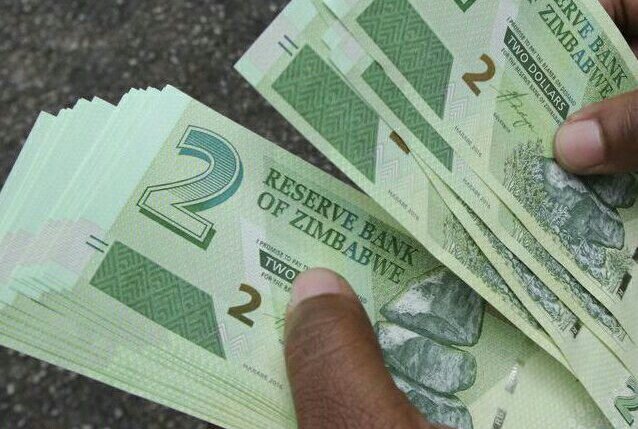By Thabani Zwelibanzi
The Reserve Bank of Zimbabwe (RBZ) insists that the de-dollarisation exercise is on course despite indications that more transactions are being carried out in United States dollars.
Presenting the monetary policy statement in Harare on Monday, RBZ governor, John Mangudya said the central bank was encouraged by the de-dollarisation process that has been taking place following the gazetting of Statutory Instruments 33 and 142 of 2019.
“The [central] bank believes that the macroeconomic signals that include fiscal and monetary discipline, prospects of positive economic growth and lower inflation are improving to support a gradual de-dollarisation process within a timeframe of five years,” he said.
“This is in line with other countries’ experiences on de-dollarisation.”
Mangudya said the use of the local currency for transacting purposes has also continued to go up, reaching a total amount of ZW$459.6 billion from 189 million transactions for the full year 2019.
“These measurements of the proportion of the use of the local currency in the economy show that the country is on a right trajectory to de-dollarisation,” he said, adding that the RBZ will continue to provide incentives to “promote and defend the use of the local currency within the economy in order to support the de-dollarisation process”.
While Mangudya seemed to paint a rosy picture on the use of the local unit for transactions, indications are that the Zimbabwe dollar is being rejected, with more businesses demanding the US dollar.
Finance minister Mthuli Ncube last week conceded that some businesses were demanding foreign currency, warning that the government “will be introducing penalties for those who deviate”.
Mangudya reiterated that free funds remained safe and there was no plan to raid US dollar-denominated accounts.
“The bank would like to reassure all holders of free funds that their funds are very safe and secure in Zimbabwe,” he said.
“The same is true for all other foreign currency accounts and that the current export retentions are being maintained at their current levels.”
The RBZ governor said he was optimistic that the economy will grow at 3 percent on account of increased international prices of key minerals produced in Zimbabwe such as gold, platinum and palladium.
In spite of Zimbabwe being in the throes of its worst drought in years Mangudya said he was confident that this year’s agricultural outturn will be much better than initially anticipated due to improved rains received in January and February in most parts of the country.
The World Bank had projected that Zimbabwe’s economy will grow by 2.7 percent in 2020, but has indicated that it will review this figure downwards.
Last year, the World Bank had forecast that Zimbabwe’s economy will grow by 3 percent, but it contracted by between 6.5 and 7.5 percent.
The Economist Intelligence Unit has projected that Zimbabwe’s economy will be one of the world’s worst-performing ones, contracting by 12.5 percent.

